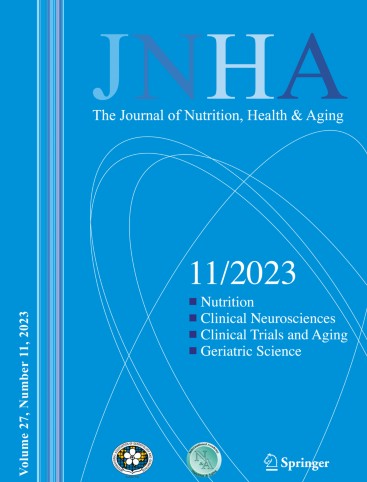Temporal trends in the planetary health diet index and its association with cardiovascular, kidney, and metabolic diseases: A comprehensive analysis from global and individual perspectives
IF 4.3
3区 医学
Q1 GERIATRICS & GERONTOLOGY
引用次数: 0
Abstract
Background
Diet plays a critical role in human health and environmental sustainability, particularly in cardiovascular, kidney, and metabolic (CKM) diseases. However, the variations in the Planetary Health Diet Index (PHDI) across populations, regions, and over time, as well as its association with CKM disease burdens, remain insufficiently explored.
Methods
We assessed PHDI scores using data from 185 countries (1990–2018) from the Global Dietary Database, examining demographic characteristics and temporal trends. The Global Burden of Disease Study was used to evaluate the associations between PHDI and CKM disease burdens, including incidence, prevalence, mortality, and disability-adjusted life years. CKM syndrome was defined by the American Heart Association. Individual-level data from the National Health and Nutrition Examination Survey (NHANES) were also used to assess the impact of PHDI on CKM risks and mortality.
Results
From 1990 to 2018, while overall PHDI scores remained relatively stable between sexes, the composition of PHDI scores shifted across different age groups. In 2018, the mean PHDI score was 42.80 (95% uncertainty interval [UI] 42.49–46.50) for males and 44.65 (95% UI 44.53–47.82) for females. Higher PHDI scores were observed among females, older adults, urban residents, individuals with higher education, and those from South Asia. Globally, consumption of red/processed meat, saturated oils/trans fats, and added sugars substantially exceeded the EAT-Lancet Commission’s reference values. Higher PHDI scores were generally associated with lower CKM disease burdens, although these associations varied by disease subtype. In individual-level analysis, including 45,460 NHANES participants (weighted mean age: 47.21 years, 51.4% female), each 10-point increase in PHDI was linked to a 13.7% reduction in stage 3/4 CKM syndrome risk, an 11.1% reduction in stage 4 CKM syndrome risk, and lower incidences and mortality rates for cardiovascular diseases, metabolic diseases, and chronic kidney disease.
Conclusions
From 1990 to 2018, significant changes occurred in the components of the PHDI, with notable variations by demographics and region. Higher PHDI scores may reduce CKM disease burdens, warranting further investigation into specific disease subtypes.
求助全文
约1分钟内获得全文
求助全文
来源期刊
CiteScore
7.80
自引率
3.40%
发文量
136
审稿时长
4-8 weeks
期刊介绍:
There is increasing scientific and clinical interest in the interactions of nutrition and health as part of the aging process. This interest is due to the important role that nutrition plays throughout the life span. This role affects the growth and development of the body during childhood, affects the risk of acute and chronic diseases, the maintenance of physiological processes and the biological process of aging. A major aim of "The Journal of Nutrition, Health & Aging" is to contribute to the improvement of knowledge regarding the relationships between nutrition and the aging process from birth to old age.

 求助内容:
求助内容: 应助结果提醒方式:
应助结果提醒方式:


